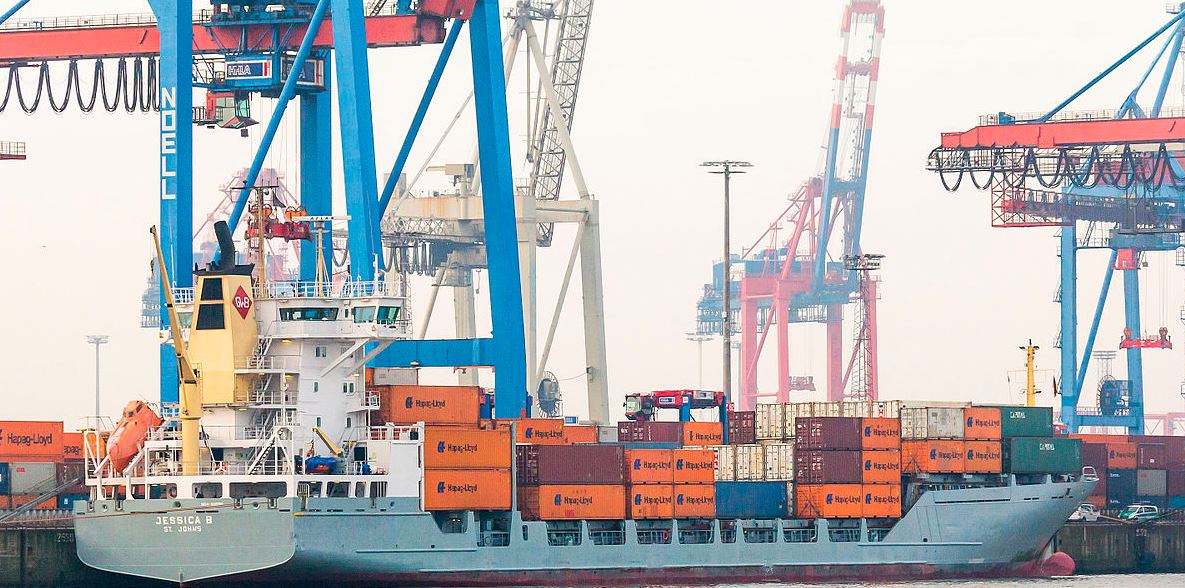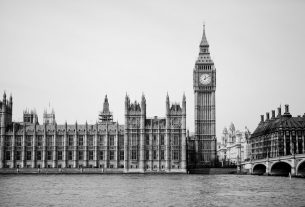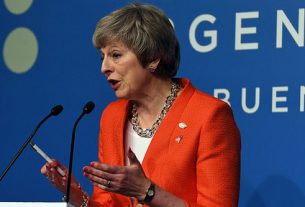UK imports of goods from the EU fell 25% in the first year of the post-Brexit trade agreement as compared to the rest of the world, a major study has found.
The report by the LSE (London School of Economics and Political Science) – which claims to be the most comprehensive study into the effects of Brexit on UK-EU trade since the 2016 referendum – found a “sharp drop” in trading relationships.
While UK exports to the EU registered “a smaller and only temporary decline”, a co-author of the report Rebecca Freeman said: “Although it is surprising that imports were hit harder than exports during the first year of the TCA [Trade and Cooperation Agreement], it would be a mistake to conclude that exporters were unaffected.”
Smaller UK firms have been hit hardest with increased paperwork and checks arising from the TCA between the UK and EU, which came into force on January 1, 2021.
Brexit Britain delays fully implementing TCA
Post-Brexit Britain has still not fully enforced the TCA and recent reports suggest Boris Johnson’s government will delay for a fourth time introducing new checks on imports from the EU. Conversely, the EU has been implementing full checks on UK exports to the EU since the start of 2021.
LSE professor of economics and a co-author of the report Thomas Sampson said the TCA “has increased trade costs” leading to a fall in imports from the EU as the UK has become “a harder place to do business.”
The Telegraph reports “there is no evidence of a ‘sustained decline’ in UK exports to the EU” since Johnson’s Brexit deal “kicked in”. However, its article quotes another co-author of the study, Thomas Prayer, who said: “It appears the UK simply stopped selling a lot of products to smaller countries in the EU.”
The Financial Times reports the findings from the LSE report “chime with warnings from business groups that smaller firms have struggled to absorb customs controls, VAT and regulatory red tape, with many quitting exporting altogether.”
The study analysed changes to trade patterns for 1,200 products traded with the EU and states the return to pre-Brexit levels of UK exports to the EU “masks a steep decline in the number of varieties [of goods] exported, driven by the exit of ‘small’ varieties that account for a low share of total exports.”
Farage complains about Twitter, on Twitter
Meanwhile, arch-Brexiteer Nigel Farage is complaining on Twitter that nobody new follows him on Twitter anymore and is blaming the social network’s “algorithim”.
The former UKIP and Brexit Party leader posted: “For years I would gain 30,000 new Twitter followers per month and most tweets would get 5,000 plus retweets.
“Now I’ve had zero growth for 18 months and engagement is at an all-time low. It’s the same for thousands of others. Twitter’s algorithm now needs to change — and change fast!”
Farage has hopes things will change following Elon Musk’s £34 billion takeover of Twitter though he did admit in a video posted with his tweet that it’s possible “my stuff’s really dull and boring” and that “I’ve nothing interesting to say, no original thoughts whatsoever.”
Farage, laughing, quickly added: “I don’t actually think that’s the case.”
Self proclaimed “free speech absolutist” Musk has been warned by both the UK government and the EU that he must protect Twitter users from harmful content after buying the company.
“Regardless of ownership, all social media platforms must be responsible,” said Boris Johnson’s spokesman.
Thierry Breton, an EU commissioner for the internal market warned: “Be it cars or social media, any company operating in Europe needs to comply with our rules – regardless of their shareholding.”




